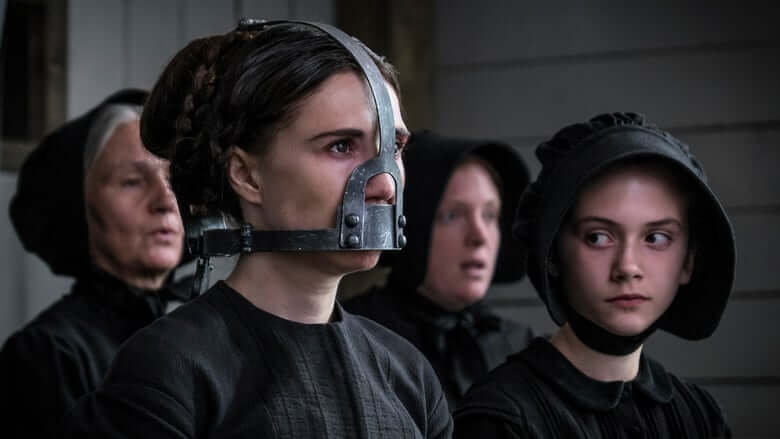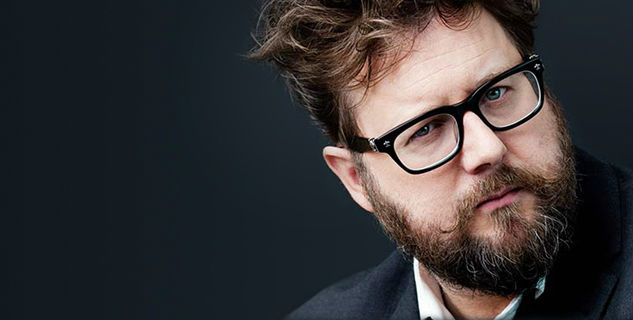
Martin Koolhoven's seems to always hit home runs as far as the Dutch Box Office is concerned, and his 2008 film Winter in Wartime not only outgrossed Twilight and The Dark Knight but also made the Academy shortlist for Best Foreign Film. His latest film and first international release is a dark and gritty western called Brimstone has an all-star cast including Guy Pearce, Dakota Fanning, Emilia Jones, Carice Van Houten, and Kit Harington. Martin answered a few questions about his latest venture and love of films.
Brimstone is a hell of a thing. It's heavy, it's tense, it's as unforgiving as The Reverend himself. Besides your desire to make a Western, where did this story come from? Where did you find all these pieces to fit together into this epic tale?
It started off with the realization that the appeal of the genre was a very boyish thing. The whole idea of the American West is appealing because there is this lack of rules, even lawlessness that is very attractive to men. But this freedom and these opportunities were not the same for women. When I realized that, I wanted to show the other side of the coin.
Also, I felt that the only way I could justify making a Western (which I consider the greatest movie genre there is) and stop being intimidated by all these classics that are already made if I would make it a personal movie, something that had to do with my cultural inheritance. The Calvinistic belief has been very important for the country I grew up in and I was brought up protestant, so I decided to use that. Those things combined led to Brimstone.
Why did you feel this particular story was important to tell?
I believe I just answered that question already [above]. But when I realized I was writing about a religious fanatic who feels his own needs are divinely inspired, and he justifies his violent actions by the holy scripture, I understood this was resonating in today's world. Historical movies should reflect their own times as much as contemporary ones.
What are audiences going to take away from your film, or what do you hope they take away?
If I could explain that in a few sentences, why would I want to make the movie? But in abstract, I want people to be emotionally affected by my movies. It’s not so much about an intellectual lesson or message, it is about telling a story and characters that affect you.
What was the energy like on set? How do you keep everyone's spirits lifted when working with such dark material?
It’s a misconception that scenes that are intense to look at are the hardest to do emotionally. Actually, the actors had quite a good time, I think. Even the young actors who had to be in some pretty tough scenes. I asked Emilia Jones (who was 13 at the time we were shooting) after the shoot what her favorite scenes were and she told me she absolutely loved being dragged through the mud…
Which moments were the most difficult to film, thematically and technically?
I don’t want to give things away, but there is a scene with a pig that was complicated to do, from an emotional point of view as well as a technical. The young actress had to cry at the end of the scene and it became pretty emotional on set.
Where did your love and desire to write/direct stem from? What started it all?
As far back as I can remember, I always loved movies. Yet I didn’t grow up in an environment that you would think that becoming a filmmaker was an option. But I remember that when I saw Once Upon a Time in the West something struck a chord. It was a film that was obviously made, not something that just accidentally happened in front of a camera. I think I was about eleven at the time. Then, when I was about thirteen I saw E.T. and there was quite a bit of media attention for Spielberg. Also, video came up, so with some friends, I hired a movie box (a VCR that video stores would rent out) and watch Raiders of the Lost Ark. I realized that this Spielberg-fellow was the guy who connected these movies. I remember at some point spending my vacation with my aunt because she had a VCR. Half of the day I’d spend in the video store, the other half watching the movies. Spielberg was my first hero. I’d see Close Encounters, Jaws and really understanding the connection between them. But it wasn’t until I was about 17 and I got a camera in my hand through school, I realized that movies were not only something I could consume, perhaps I could make them.
What's the most important lesson you've learned as a storyteller thus far in your career?
The more you are emotionally connected to your material, the more satisfying the work becomes. After a movie is finished it is nice if it is a success at the box office, gets good reviews and wins awards, but that experience is the most satisfying if the movie feels truly yours.
What's the best advice you've been given?
When I was in film school in Amsterdam I learned a lot from Director Harry Kümel, who was teaching me in film school. He opened my eyes to what you could do with film and that you could tell the story with every aspect of it. I met Paul Verhoeven when he was at the top of his game, doing promotion for his Basic Instinct. Both have been important to me and I’m still in contact with them. The best advice I got was not something Paul told me literally, but something I got out of conversations and watching his work: Never settle. Be ambitious and demand the best. Knowing what to do is important, but getting it is quality as well.
What's something you learned during this production that you'll make sure to keep in mind for your future productions? Mistakes made or revelations had?
Think big. I don’t mean that in terms of budget, but in terms of artistic ambition. You have to really want to make a great movie. And when you have a good script, you can get anybody you want. Mistakes I made? Practical stuff. I hope I have learned how not to approach agents, not to waste time and money at the beginning of pre-production.
As a storyteller, what's one of the biggest things holding you back?
I always feel like I have to know everything in order to start writing. I read a lot, see movies with similar themes. Sometimes I think I should just go ahead and start. Discover things as I go along.
Do you see a partnership with an American studio at any point in the future, or is there more open-mindedness and control to be had working outside of that industry?
There are two very important issues here: I have to love the script and I must have the feeling I have the leverage to make the movie I want to. I have been offered stuff, but we’ve never even passed that first issue.
What keeps you motivated? What allows you to keep doing what you do?
I love movies.
Which film have you seen the most, and what do you think that says about you?
Probably Finding Nemo. My children love it and so do I. If I forget about movies I’ve watched with my kids, I think it might be Some Like it Hot, Billy Wilder’s fantastic comedy. Wilder is God.
If you had infinite resources and budget, what is a fantasy project you would like to tackle?
There is so much, but I would love to film a James Carlos Blake book.
What's next for you?
Not sure yet, but at the moment I’m writing an edgy noirish thriller.
